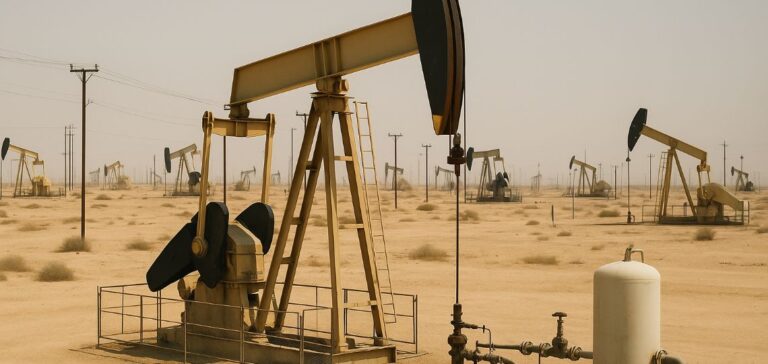Oil prices recorded a sharp increase following the conclusion of a trade agreement between the United States and the United Kingdom, fuelling hopes of a broader easing of international trade tensions. The Brent crude barrel from the North Sea for July delivery closed at $62.84, up 2.81%, while the American West Texas Intermediate (WTI) barrel for June delivery rose 3.17% to $59.91.
A bilateral compromise seen as a signal of openness
The agreement was presented as a “historic” compromise by U.S. President Donald Trump, although the details of the text remain partially vague. The British government, for its part, highlighted the expected benefits for the automotive and steel industries. The deal would notably allow wider access to British markets for certain American agricultural exports, such as beef and ethanol.
Rob Haworth, strategist at US Bank Wealth Management, told AFP that this market movement “reflects the hope that the agreement with the United Kingdom is only the first in a long series”. According to him, a succession of such deals could reduce uncertainty for businesses and improve overall economic prospects.
Immediate effect on oil markets
Analysts believe this announcement strengthens short-term expectations of increased hydrocarbon demand, thus supporting crude oil prices. Furthermore, Donald Trump indicated that “substantial” negotiations with China, the world’s largest oil importer, are planned in Switzerland this weekend, adding an additional support factor.
However, markets remain cautious. “Investors are still waiting for details to assess the actual impact on tariffs,” Haworth noted. At the same time, crude prices remain near four-year lows due to the anticipated short-term increase in supply.
An Opec+ production hike in the background
The Organization of the Petroleum Exporting Countries and its allies (Opec+), including Russia and Saudi Arabia, confirmed on May 4 an increase in production for June. This will reach 411,000 additional barrels per day, representing an acceleration compared to the initially planned 137,000 barrels. This decision comes as demand remains volatile and global storage capacities are tightening.
Market operators are therefore currently assessing two opposing dynamics: a potential easing of global trade and supply-side pressure due to the increase in available volumes on the market.






















